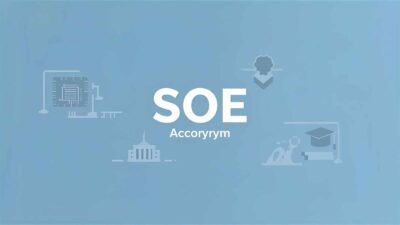What Does the Mocha Acronym Mean? ☕
The word Mocha often reminds us of a comforting mix of coffee and chocolate—but in professional and creative circles, MOCHA is also a powerful acronym. In project management, leadership, and organizational strategy, MOCHA stands for Manager, Owner, Consulted, Helper, Approver.
It’s a responsibility assignment framework that helps clarify who does what in any project. While RACI or DACI are more commonly known, MOCHA adds a personal touch—it emphasizes accountability and teamwork in a way that feels both structured and human.
However, the acronym “MOCHA” is flexible and has inspired many reinterpretations across business, tech, education, and even wellness. In this article, we’ll decode 30 alternative meanings for MOCHA, complete with explanations, examples, and guidance on when each fits best.
🧩 30 Mocha Acronym Alternatives and When to Use Them
1. MOCHA – Manager, Owner, Consulted, Helper, Approver (Core Meaning)
Meaning: Defines clear roles and responsibilities in a team.
Example: “Our nonprofit uses the MOCHA model to clarify who’s responsible for each task.”
When to Use: In team management, project planning, or leadership development.
2. MOCHA – Measure, Observe, Correct, Handle, Analyze
Meaning: Continuous improvement cycle for quality control.
Example: “The MOCHA process helps ensure our data stays accurate.”
When to Use: In data analysis or engineering workflows.
3. MOCHA – Motivate, Organize, Communicate, Help, Achieve
Meaning: A motivational framework for leadership.
Example: “Good managers follow MOCHA—Motivate and Communicate to help teams achieve.”
When to Use: For leadership coaching or personal productivity.
4. MOCHA – Monitor, Optimize, Check, Handle, Adjust
Meaning: Focuses on system efficiency and ongoing improvement.
Example: “Our DevOps pipeline runs through MOCHA checks weekly.”
When to Use: In IT, DevOps, or process management.
5. MOCHA – Manage, Observe, Communicate, Help, Adapt
Meaning: Encourages flexibility and responsiveness in leadership.
Example: “Great managers use MOCHA to adapt to new challenges.”
When to Use: In team dynamics or change management.
6. MOCHA – Model, Outline, Clarify, Harmonize, Apply
Meaning: Framework for structured learning or policy design.
Example: “We used MOCHA to create a clear training roadmap.”
When to Use: For education or curriculum development.
7. MOCHA – Map, Observe, Create, Handle, Assess
Meaning: Strategic planning tool emphasizing creativity.
Example: “Our product designers rely on MOCHA to map and create innovative ideas.”
When to Use: In design thinking or creative planning.
8. MOCHA – Motivate, Observe, Coach, Help, Advance
Meaning: Leadership approach for mentoring teams.
Example: “Her MOCHA style of leadership inspires real growth.”
When to Use: For coaching, mentorship, or human resources.
9. MOCHA – Manage, Operate, Control, Handle, Audit
Meaning: Focused on management accountability.
Example: “MOCHA ensures that all operations remain transparent.”
When to Use: In corporate governance or finance.
10. MOCHA – Measure, Optimize, Communicate, Harmonize, Automate
Meaning: Modern digital operations model.
Example: “Marketing automation thrives under the MOCHA method.”
When to Use: For marketing tech or business analytics.
11. MOCHA – Monitor, Observe, Collaborate, Help, Adjust
Meaning: Encourages teamwork and adaptability.
Example: “Teams using MOCHA collaborate better under pressure.”
When to Use: In remote teams or cross-functional projects.
12. MOCHA – Map, Organize, Communicate, Handle, Align
Meaning: Streamlines project alignment and communication.
Example: “MOCHA helps align multiple departments with one vision.”
When to Use: For project alignment or strategic coordination.
13. MOCHA – Manage, Optimize, Coordinate, Handle, Assess
Meaning: Balances leadership with analytics.
Example: “Managers use MOCHA to assess team performance.”
When to Use: In performance reviews or resource planning.
14. MOCHA – Monitor, Operate, Calibrate, Handle, Adjust
Meaning: Technical control model for systems management.
Example: “Our engineers rely on MOCHA protocols to maintain uptime.”
When to Use: In engineering or manufacturing.
15. MOCHA – Measure, Organize, Communicate, Help, Assess
Meaning: Focuses on clarity and collaboration.
Example: “Our meetings follow MOCHA to stay efficient and organized.”
When to Use: For team communication or performance analysis.
16. MOCHA – Motivate, Organize, Create, Harmonize, Accomplish
Meaning: Creative leadership framework for innovation.
Example: “MOCHA inspires balance between creativity and teamwork.”
When to Use: In creative industries or marketing agencies.
17. MOCHA – Manage, Optimize, Collaborate, Help, Advance
Meaning: Promotes cooperative progress.
Example: “With MOCHA, departments work together seamlessly.”
When to Use: In organizational development.
18. MOCHA – Model, Observe, Coach, Help, Adapt
Meaning: Empathetic approach to supervision.
Example: “MOCHA leaders coach rather than command.”
When to Use: For leadership training.
19. MOCHA – Map, Operate, Check, Harmonize, Apply
Meaning: Combines planning with implementation.
Example: “We apply MOCHA to streamline operations.”
When to Use: In business strategy or process optimization.
20. MOCHA – Manage, Observe, Control, Help, Align
Meaning: Management model emphasizing alignment and oversight.
Example: “MOCHA ensures that leadership decisions stay balanced.”
When to Use: For organizational governance.
21. MOCHA – Monitor, Outline, Communicate, Handle, Adapt
Meaning: Adaptation-focused version for flexible teams.
Example: “MOCHA keeps remote workers engaged and accountable.”
When to Use: In distributed team settings.
22. MOCHA – Measure, Observe, Coach, Help, Advance
Meaning: Mentorship framework for skill development.
Example: “Our MOCHA mentorship program grows internal talent.”
When to Use: For training programs or talent development.
23. MOCHA – Motivate, Organize, Coach, Harmonize, Achieve
Meaning: Empowers leaders to guide teams toward success.
Example: “MOCHA leadership nurtures trust and results.”
When to Use: For team leadership or performance motivation.
24. MOCHA – Manage, Operate, Create, Handle, Assess
Meaning: Balances operations with innovation.
Example: “MOCHA keeps both creative and operational teams aligned.”
When to Use: In startup management.
25. MOCHA – Monitor, Optimize, Communicate, Help, Align
Meaning: Combines analytics with teamwork.
Example: “Our social media team applies MOCHA to balance automation with empathy.”
When to Use: For digital marketing or social strategy.
26. MOCHA – Model, Observe, Collaborate, Help, Apply
Meaning: Encourages shared responsibility and learning.
Example: “MOCHA ensures every team member plays a valuable role.”
When to Use: For collaborative projects.
27. MOCHA – Manage, Organize, Coordinate, Help, Approve
Meaning: Clarifies roles in decision-making processes.
Example: “MOCHA helps avoid confusion during project approvals.”
When to Use: In approval workflows or process governance.
28. MOCHA – Map, Optimize, Communicate, Handle, Apply
Meaning: Planning and execution method for agile environments.
Example: “We use MOCHA to stay flexible and results-driven.”
When to Use: For agile management or product design.
29. MOCHA – Motivate, Observe, Collaborate, Help, Adapt
Meaning: Encourages cooperation and emotional intelligence.
Example: “MOCHA keeps leaders empathetic and connected.”
When to Use: For emotional intelligence training.
30. MOCHA – Manage, Oversee, Communicate, Help, Achieve
Meaning: Simplified leadership model for results-driven teams.
Example: “Our MOCHA meetings focus on outcomes, not obstacles.”
When to Use: For general management and team success metrics.
🧭 Choosing the Right “MOCHA” Acronym: Tone and Context Tips
| Situation | Best MOCHA Version |
|---|---|
| Project Management | Manager, Owner, Consulted, Helper, Approver |
| Leadership Coaching | Motivate, Observe, Coach, Help, Advance |
| Creative Teams | Motivate, Organize, Create, Harmonize, Accomplish |
| Operations / IT | Monitor, Optimize, Check, Handle, Adjust |
| Education | Model, Outline, Clarify, Harmonize, Apply |
🌍 Cultural and Emotional Contexts
- In Western business culture, MOCHA often represents accountability and collaboration.
- In education and coaching, it’s reinterpreted to highlight growth and mentorship.
- In tech, it symbolizes iterative improvement and agility.
✅ FAQ Section
Q1. What does the MOCHA acronym stand for in project management?
A1. In project management, MOCHA stands for Manager, Owner, Consulted, Helper, Approver. It clarifies who’s responsible for each part of a project and prevents role confusion.
Q2. How is MOCHA different from RACI?
A2. MOCHA adds more personal accountability than RACI by defining an Owner (the main driver) and Helper (support role), creating a more collaborative workflow.
Q3. Can MOCHA be used outside of project management?
A3. Absolutely! MOCHA is also used in education, leadership coaching, and business strategy to assign clear responsibilities and improve teamwork.
Q4. What are some creative MOCHA acronym meanings?
A4. Variations include Motivate, Organize, Communicate, Help, Achieve or Measure, Observe, Correct, Handle, Analyze—adapted for leadership, analytics, or creative industries.
Q5. Why is understanding MOCHA important?
A5. Knowing how to apply MOCHA builds stronger communication, accountability, and harmony within teams—making projects smoother and more successful.
✨ Conclusion: Making MOCHA Work for You
The MOCHA acronym, whether used in its classic or creative forms, helps teams work smarter by defining clear roles and fostering collaboration. From leadership to process optimization, these 30 variations show how MOCHA can adapt across industries.
Choose the version that aligns with your goals—whether that’s managing projects, inspiring teams, or innovating faster—and let your MOCHA mindset brew success in every field.




